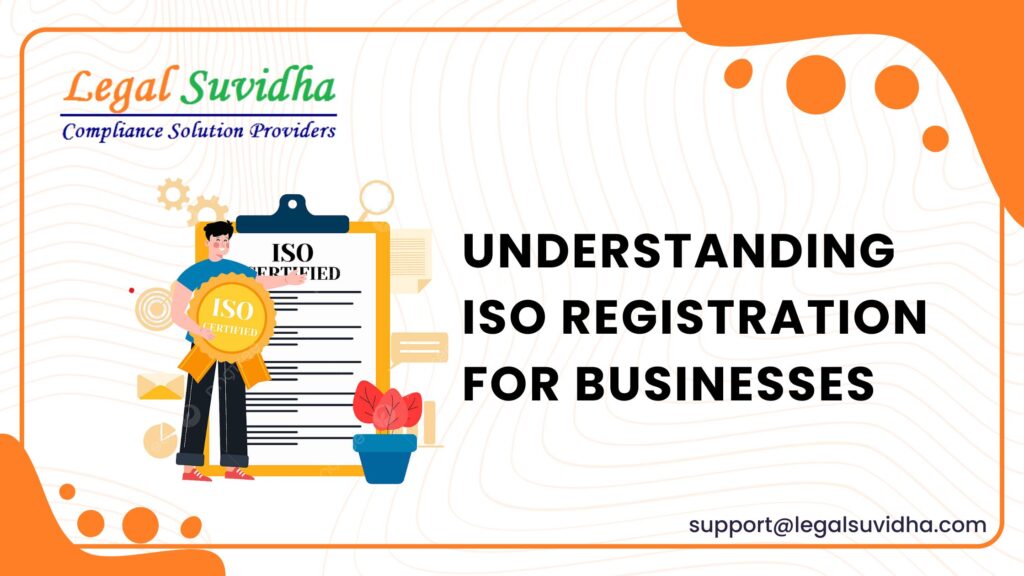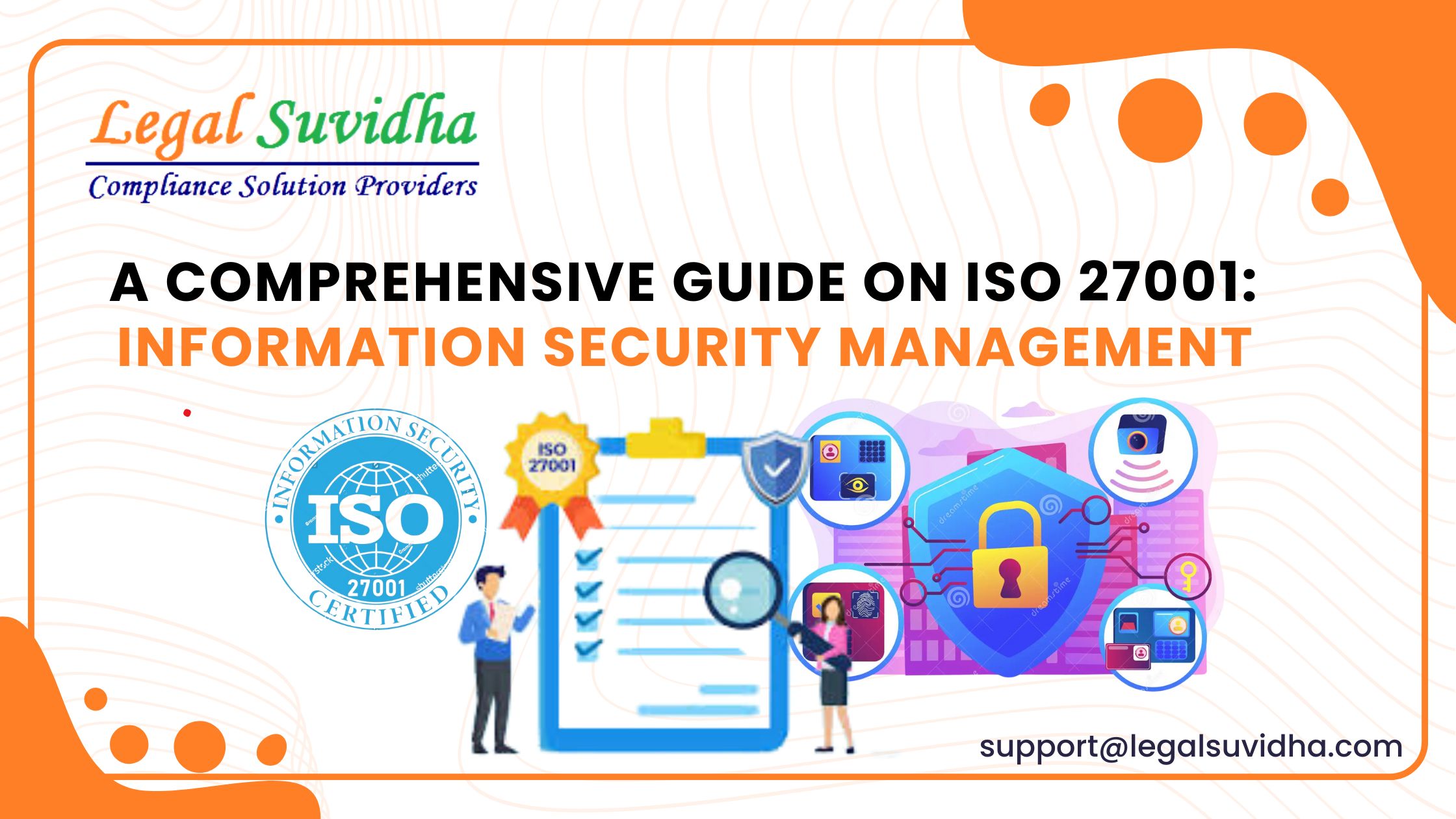Understanding ISO Registration for Businesses
1. Introduction to ISO Registration
What is ISO?
The International Organization for Standardization (ISO) is a group that creates standards to make sure products, services, and systems are of good quality, safe, and work well. These standards are important for businesses that want to meet global levels of quality.
Why ISO Certification Matters
Getting ISO certification means a business follows rules that are recognized worldwide. This makes customers, suppliers, and others trust the business more. Businesses with ISO certification usually run more smoothly, make customers happier, and become easier to market.
2. Types of ISO Certifications
Common ISO Standards for Businesses
There are different ISO standards that focus on various parts of how businesses run:
- ISO 9001: Helps businesses deliver products and services that meet customer needs.
- ISO 14001: Helps businesses reduce their effect on the environment and follow environmental rules.
- ISO 45001: Focuses on making workplaces safer and reducing risks.
- ISO 27001: Helps protect important information and prevent data leaks.
Choosing the Right ISO Certification
The right ISO certification depends on what your business does. For example, a factory might focus on ISO 9001 for quality, while a tech company might go for ISO 27001 to keep data safe.
3. The ISO Registration Process
Steps to Achieve ISO Certification
The process to get ISO certification usually includes:
- Initial Check: Look at your current practices and compare them to ISO rules.
- Documentation and Implementation: Create and use new rules that meet ISO standards.
- Internal Audit: Check if your business is following the rules, and fix any problems.
- Certification Audit: An outside expert checks if your business meets ISO standards.
Timeline and Costs
Getting ISO certification can take about 3 to 6 months. The cost can range from ₹1 lakh to ₹5 lakhs, depending on things like the size of your business and training needs.
4. Benefits of ISO Certification for Businesses
Better Efficiency and Less Risk
ISO standards give businesses a plan to follow that makes them run better and helps avoid risks. By following these standards, companies can make their products better and avoid problems.
More Sales and a Competitive Edge
ISO certification can make your business stand out. It shows that you care about quality, which can help you get new customers and enter new markets.
Following Legal Rules
ISO standards often match legal rules. Getting ISO certification can help make sure your business follows important laws, especially in industries like healthcare and finance.
5. Challenges in ISO Registration
Common Problems
Getting ISO certification can be tough and take a lot of time and resources. Common problems include:
- Complex Paperwork: Writing all the required documents can be overwhelming.
- Training and Resources: Making sure your workers are trained and ready can be difficult.
How to Overcome Challenges
To handle these challenges, businesses can:
- Hire ISO Consultants: Experts can help make the process easier and ensure you’re meeting the right standards.
- Plan Well: Proper planning and regular checks can help you fix problems early on.
6. Maintaining ISO Certification
Keeping Your Certification
Getting ISO certification is just the start. You’ll need to keep checking your processes to stay in line with the standards. Regular audits are needed to make sure you don’t fall behind.
Renewing ISO Certification
ISO certification lasts for three years. After that, you’ll need a new audit to keep your certification.
7. FAQs on ISO Registration
- What is the average cost of ISO certification for small businesses?
It usually costs between ₹1 lakh and ₹3 lakhs. - How long does the ISO certification process take?
The process usually takes 3 to 6 months. - Can a business get more than one ISO certification?
Yes, if they meet the requirements for each one. - What is the difference between ISO certification and accreditation?
ISO certification shows that a business meets the standards, while accreditation ensures the body giving the certification is qualified. - How often is ISO certification renewed?
Every three years, with annual audits to ensure compliance. - Can ISO certification help with legal compliance?
Yes, it can help businesses meet legal requirements. - What is the role of internal audits in maintaining ISO certification?
They help find and fix issues to make sure you keep following the standards. - How do businesses prepare for the ISO certification audit?
By conducting internal audits, reviewing documents, and training workers. - What industries benefit the most from ISO certification?
Healthcare, manufacturing, and finance benefit greatly due to strict legal requirements. - Can ISO certification improve customer satisfaction?
Yes, it helps businesses improve quality and build trust with customers. - What are the benefits of hiring an ISO consultant?
They provide expert help, making the process easier and improving your chances of success. - What’s the difference between ISO 9001 and ISO 14001?
ISO 9001 focuses on quality management, while ISO 14001 focuses on environmental impact. - Can small businesses achieve ISO certification?
Yes, the process is scaled to the size of the business.
8. Conclusion
Getting ISO certification can be a smart move for businesses. It improves how they run and makes them more appealing to customers. By following the right steps and keeping up with the standards, businesses can use ISO certification to stand out in their field.








